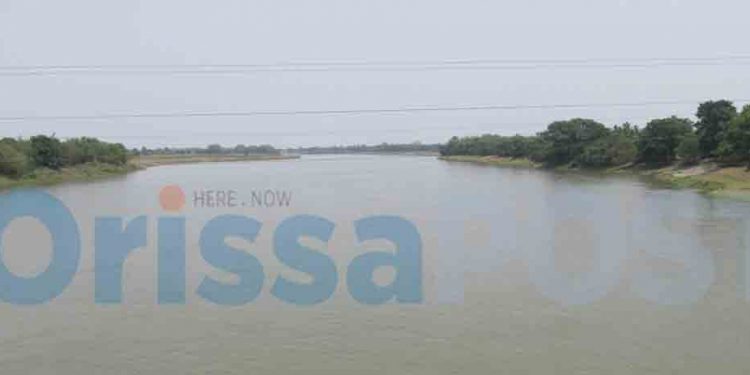Jajpur: Heavy discharge of industrial effluents into Brahmani and Kharasrota rivers as well as into Gonda nullah from industrial firms in Kalinganagar in Jajpur district have sent alarm bells ringing. It has sparked concern among the residents in the district.
As a result, the two rivers which are known as the lifeline of Jajpur district have turned toxic for human consumption. This has happened as the discharge of toxic chemicals like cyanide and phenolic compounds (coal-based products) have seen a twofold rise over last three years.
The matter came to the fore after the central laboratory examined the water samples of the three water bodies and submitted a report on the presence of toxic chemicals present October 25. The state pollution control board collected water samples from seven places of the three water bodies and deposited them in the central laboratory for examination. The report claims that phenolic compound present in the water bodies is 0.09ml/ltr up from its permissible limits of 0.005ml/ltr. Similarly, cyanide was found at 0.427ml/ltr than up from permissible limits of 0.05ml/ltr.
The chief scientist of the laboratory drew the attention of the state pollution control board (SPCB) to this alarming rise in toxic chemicals in the water bodies. Observers claimed this has happened as industrial firms failed to install online water monitoring systems at the discharge points of effluents.
The SPCB, in response to a high court, order had directed the industrial firms to install online monitoring facilities at specific places of the water bodies. However, the firms have failed to do so. As a result, the toxic effluents pass through Gonda nullah before they get into Brahmani and Kharasrota rivers.
A similar examination conducted in December, 2015 found presence of eight to 10 times more presence of toxic chemicals like phenolic and cyanide. This has affected the health of residents and livestock living on both sides of the three water bodies.
When contacted, RO Pramod Kumar Behera of said SPCB the problem will be resolved by the next monsoon as all industrial firms have been directed to install surface run-up treatment system.
PNN







































